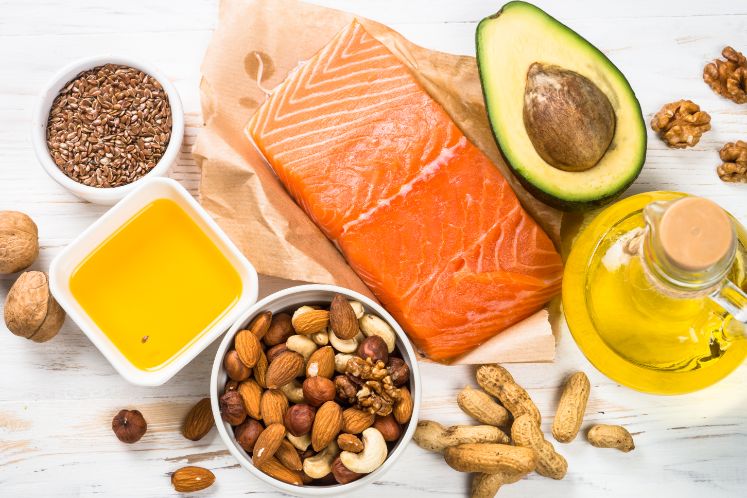Nutrients are essential components for proper bodily functioning and disease prevention, comprising macronutrients such as carbohydrates, proteins, and fats and micronutrients such as vitamins and minerals. Nutrients play an essential role in energy production, growth and development, immune system functioning, hormone regulation and disease prevention – these factors all depend on one another to function effectively.
However, not all nutrients are created equal. Some are essential, meaning your body cannot make them itself and therefore must obtain them through food or supplements. Furthermore, certain nutrients may interact with each other or with substances in your body and increase or diminish their effects accordingly.
Understanding different nutrients, their functions, sources and interactions is key to making informed choices regarding diet and lifestyle to optimize health and wellbeing.
In this article, we will examine some of the most essential and commonly consumed nutrients for health benefits, and offer effective ways to obtain them through food or supplements. Additionally, we will cover popular diets and nutrition trends which claim various health advantages; such as the carnivore diet, vertical diet, herbalife nutrition program etc. In each instance we will evaluate their pros and cons, possible side effects or risks as well as any benefits.

Carbs
Carbs (carbs, sugars and starches) are one of three macronutrients that provide energy to your body, comprising sugar molecules in either simple or complex forms. Simple carbohydrates include glucose, fructose, sucrose lactose and maltose that are commonly found in fruits honey milk sugar table sugar and candy while complex ones include starches fibers found in grains legumes vegetables nuts seeds etc.
Carbs provide fuel to both your brain and muscles, and can even be stored as glycogen for later use. Unfortunately, eating too many carbohydrates can lead to weight gain, high blood sugar levels, insulin resistance, diabetes and other health complications.
Therefore, it is advisable to limit your intake of simple carbohydrates which are high in calories but low in nutrients. Instead, focus on complex carbs that are higher in fiber and low on the glycemic index; fiber helps regulate digestion, lower cholesterol levels, control blood sugar levels and prevent constipation while its Glycemic Index score measures how quickly a food raises blood sugar levels after being eaten – foods with lower Glycemic Indices cause slower and steadier increases than foods with higher scores.
One can obtain carbohydrates through whole grains (oats, quinoa and brown rice), legumes (beans and lentils), vegetables such as broccoli and spinach as well as fruits like apples and berries; nuts (such as almonds and seeds like chia), seeds and dairy products like yogurt.

Proteins
One type of macronutrients that provide energy for your body — are composed of amino acids linked together by peptide bonds to form protein chains. There are 20 different amino acids used to form proteins; nine essential ones must come from food or supplements; the remaining 11 nonessential ones can come from other amino acids or substances in your system.
Proteins serve many roles within your body. They form the building blocks for muscles, bones, skin, hair, nails and neurotransmitters; transport and store substances within blood; regulate fluid and acid-base balance and strengthen your immune system; as well as act as neurotransmitters and hormones.
Proteins are complex molecules composed of various combinations and sequences of amino acids that affect our health and wellbeing. The quality and quantity of the proteins you consume has an impactful influence on both. Some proteins contain all nine essential amino acids in adequate amounts – animal proteins (meat, eggs, dairy) tend to provide this more comprehensively than plant ones like grains, legumes, nuts or seeds; though plant sources such as these can still provide all essential amino acids if eaten regularly throughout the day.
Your protein needs depend on factors like age, weight, activity level and health goals. Adults are recommended to consume 0.8 grams per kilogram of bodyweight per day in protein; however some individuals may require more or less depending on individual circumstances; athletes, pregnant women, older adults and people living with certain medical conditions may benefit from increased protein consumption.
Healthier sources of protein include lean meats (like chicken and turkey), eggs, dairy products (such as milk and cheese), fish such as salmon or tuna, legumes (such as beans or lentils), nuts such as walnuts or seeds like sunflower seeds; as well as soy products like tofu.
Here are a few helpful hints regarding different protein sources or supplements, for instance:
- Vega protein powders are made of plant-based proteins such as pea protein, hemp protein, pumpkin seed protein and brown rice protein – all vegan-friendly, gluten-free, non-GMO and organic.
- Chickpea protein is an all-plant-based source of protein derived from chickpeas. Packed with fiber, iron, folate, and antioxidants – chickpea protein can be used in the making of foods like hummus, falafel or chickpea flour for consumption.
- Asitis Whey Protein Isolate is an unflavored and unsweetened cow’s milk-derived isolate designed to offer high quality protein with reduced lactose and fat levels. The brand claims it delivers superior nutritional quality at minimal processing.
- Wellbeing Nutrition offers various nutritional supplements including multivitamins, probiotics, greens powder and collagen peptides. Their products use all-natural ingredients according to international quality and safety standards.
- Serious mass gainer is a brand of weight gainer supplement designed to offer high-calorie and high-protein shakes for those wanting to increase muscle mass and strength. It contains ingredients such as maltodextrin, whey protein concentrate, casein protein, creatine monohydrate, glutamine and vitamins and minerals designed to aid those having difficulty with weight gain or who have fast metabolisms. It’s intended to assist those having trouble gaining weight or fast metabolisms gain muscle faster.
These protein sources and supplements may have different advantages and disadvantages depending on your personal needs, preferences, goals and health status. It is wise to consult your physician or nutritionist prior to making significant dietary changes that include taking protein supplements or changing your diet drastically.

Fats
Fats are another macronutrient source for energy in the human body. Fats consist of fatty acids that can either be saturated or unsaturated – with saturated fatty acids having no double bonds between their carbon atoms while unsaturated ones contain one or more double bonds between their carbon atoms; unsaturated ones may further be divided into monounsaturated and polyunsaturated types.
Fats play an essential role in our bodies. They provide essential nutrition to your cells, brain, and nervous system as well as helping absorb and transport fat-soluble vitamins such as A, D, E and K for absorption by cells, produce hormones to regulate inflammation, produce hormones to produce hormones and protect organs.
But not all fats are good for your health. Certain fats may increase the risk of cardiovascular diseases, obesity, diabetes and cancer – making it essential to choose appropriate types and amounts of fats in your diet.
Limit your intake of saturated and trans fats, commonly found in animal products (butter, cheese and meat) processed foods (pastries, cookies and chips) and deep-fried food such as french fries and chicken nuggets. These fats may increase LDL levels while decreasing HDL ones.
Focus on eating foods rich in unsaturated fats such as olive oil, avocados and nuts from plants as well as fish such as salmon or mackerel from fish as well as seeds like flax seeds for best results. Unsaturated fatty acids found in plant products (olive oil, avocados and nuts from plants), fish such as salmon or mackerel from fish as well as flax seeds can help lower bad cholesterol while raising good cholesterol levels and providing essential fatty acids your body cannot produce on its own – such as omega 3s and 6s which should come from food or supplements instead.
Omega-3 fatty acids are anti-inflammatory, providing protection from or treating various health conditions like heart disease, stroke, arthritis, depression and dementia. Omega-6 fatty acids can fight infections while healing wounds; however too much omega-6 can cause chronic inflammation that increases risk for chronic diseases if consumed at too high a level – therefore, it is vital that we consume an ideal ratio between 1:1 to 4:1 of omega-6 to omega-3 fatty acids in our diets.
Healthy fat sources include olive oil, coconut oil, avocados, nuts (such as almonds or walnuts) seeds (like chia and flax seeds) fish ( such as salmon and mackerel) as well as dairy products like yogurt or cheese.
Some helpful hints regarding specific sources or supplements of fat. For instance:
- Vertical diets are diets that emphasize foods that are easy to digest and absorb, such as red meat, white rice, eggs, dairy, potatoes and oranges. According to their advocates, vertical diets may improve performance, recovery, metabolism and health; however they can be restrictive, unbalanced and costly.
- Herbalife nutrition side effects refer to any adverse reactions caused by using Herbalife products for weight loss or wellness, including liver damage, kidney problems, allergic reactions and digestive issues. These complications could include liver failure or damage in other ways as well.
These fat sources and supplements may have both benefits and drawbacks depending on your specific needs, preferences, goals, and health status. Before making any significant dietary changes or taking fat supplements of any sort, always consult your physician or nutritionist first.

Vitamins
Vitamins are micronutrients your body needs in small amounts to fulfill different functions, acting like organic compounds they dissolve either in water or fat-soluble forms. Examples of water-soluble vitamins are vitamin C and B-complex vitamins like Thiamine, Riboflavin, Niacin, Pantothenic Acid Biotin Folic Acid Cobalamin; while fat soluble forms include A, D E & K which dissolve into body tissues after being stored there.
Vitamins play multiple functions within your body. They serve as coenzymes, antioxidants, hormones and regulators of gene expression – they aid your body with metabolizing food, producing energy and synthesizing proteins while protecting cells from damage, supporting normal development and immune system function, as well as helping prevent or treat various diseases.
However, not all vitamins are equally available or necessary for your body. Some are essential, meaning your body cannot produce them; you must instead get them through food or supplements. Others are more bioactive; your body uses them more efficiently. Furthermore, certain vitamins may interact with each other or with substances in your body to either increase or diminish their effects.
Understanding the various kinds of vitamins, their functions, sources and interactions is vitally important to making informed choices that improve both your diet and lifestyle for optimal health and well-being.
Food sources that contain plenty of healthy vitamins include fruits (oranges, kiwis), vegetables (carrots and kale), dairy products such as milk and cheese; eggs; fish (such as salmon and sardines); nuts such as almonds or sunflower seeds; as well as fortified foods like cereals or bread.
Here are a few tips related to different sources and supplements of vitamins. For instance:
- 0 calorie foods are foods with very few or negligible calories that still provide essential nutrition and fiber, often used to aid weight loss or appetite control. Some examples of zero-caloric foods are celery, cucumber, lettuce, watermelons and grapefruit.
- Chicken thigh nutrition refers to the nutritional information for chicken thighs, which form the lower part of chicken legs. They contain high levels of proteins, iron, zinc and vitamin B12 while being higher in fat and calories compared to chicken breast. Chicken thighs can be cooked using various techniques including baking, frying, grilling or roasting for optimal results.
- Fitfuel Nutrition is a brand of nutritional supplements offering products such as protein bars, shakes, pre-workout beverages and energy drinks made with natural ingredients for fitness enthusiasts and athletes. Furthermore, Fitfuel also offers personalized nutrition plans as well as coaching services.
Vitamin sources and supplements may offer differing advantages and drawbacks depending on your personal preferences, goals, health conditions, and overall needs. Before making major dietary or vitamin supplementation changes without consulting with a medical provider or nutritionist first.

Minerals
Your body requires small amounts of minerals as micronutrients in order to perform various functions effectively. They’re inorganic elements which come either as macrominerals or trace minerals – macrominerals include calcium, phosphorus, magnesium, sodium potassium chloride sulfur; while trace minerals include iron zinc copper manganese selenium fluoride chromium etc.
Minerals play many essential roles in your body. They help regulate fluid and electrolyte balance, form bones and teeth, contract muscles, transmit nerve impulses, produce enzymes and hormones, regulate blood pressure and blood sugar levels, prevent or treat various diseases and more.
However, not all minerals are equally available to or required by your body. Some essential ones cannot be produced internally by your body and must come from food or supplements; other bioactive minerals allow your body to use them more effectively; some even interact with one another or other substances in your body, either amplifying their effects or mitigating them.
Therefore, it is vital that you gain an in-depth knowledge of various minerals, their functions, sources and interactions – this way you can make educated choices regarding diet and lifestyle that support optimal health and well-being.
An assortment of healthy mineral sources includes dairy products (milk and cheese), eggs, fish (such as salmon and sardines), nuts such as almonds walnuts and seeds like chia and flax can provide essential minerals. Legumes (beans lentils etc), grains like oatmeal quinoa oats can also provide beneficial sources, fruits such as bananas oranges rhubarb etc and fortified foods (ceremonies breads etc).
Here are a few helpful hints regarding specific mineral sources or supplements, for instance:
- Carnivore Diet Meal Plan is a type of diet which involves only consuming animal products such as meat, eggs, dairy, fish and organ meats. While the plan claims to enhance digestion, weight loss, mental clarity and overall health; it may also deprive your body of fiber, vitamins minerals antioxidants phytochemicals that it needs. Furthermore it could increase risk factors such as kidney stones gout high cholesterol and heart disease.
- Herbalife nutrition side effects refer to any potential adverse reactions caused by using their products for weight loss and wellness, such as liver damage, kidney issues, allergic reactions, digestive issues or digestive discomfort. Some examples may include liver or kidney issues as well as allergies causing digestive distress or digestive upsets.
- Fitfuel nutrition is a brand of nutritional supplements offering products such as protein bars, shakes, pre-workout drinks and energy drinks sourced from natural ingredients to deliver superior performance for fitness enthusiasts and athletes. They offer personalized nutrition plans as well as coaching services.
Mineral supplements and sources may have different advantages and disadvantages depending on your personal needs, preferences, goals and health conditions. Before making major dietary or supplement changes or taking any mineral supplements it is advisable to speak to both a nutritionist or doctor first.
Conclusion
Nutrients are at the core of living a healthy lifestyle. They provide energy, facilitate growth and development, regulate body functions, prevent or treat disease and more. Unfortunately, not all nutrients are equally available or required by your body; some nutrients are more essential or bioactive than others and others might interact with each other or with substances within your body in surprising ways.
Understanding different nutrients, their sources and interactions is essential in making informed choices that support health and wellbeing. By being knowledgeable of all available nutritional sources and their interactions, informed choices about diet and lifestyle decisions can be made with greater ease and benefit your overall well-being.
In this article, we have explored some of the essential nutrients essential for health: carbohydrates, proteins, fats, vitamins and minerals. In addition, we examined some popular diets and nutrition trends which claim various health benefits such as the carnivore diet, vertical diet and herbalife nutrition program; including their potential pros and cons as well as any possible risks involved with them.
We hope that this article has provided you with a deeper understanding of the role nutrients play in your health and well-being. Remember that nutrition should never be seen as a one-size-fits-all solution – always consult with a physician or nutritionist prior to making major dietary changes or supplement intake decisions.







